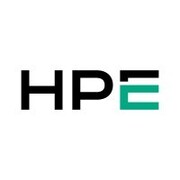
Best Density-Optimized Servers 2025
High-density or density-optimized servers support high performance computing (HPC) and virtualization. These servers are generally deployed by companies offering cloud services, companies providing data center services, or others entities needing great computing power.
We’ve collected videos, features, and capabilities below. Take me there.
All Products
Learn More about Density-Optimized Servers Software
What are Density-Optimized Servers?
Density-optimized servers, sometimes referred to as high-density servers, are compact, scalable servers. They are designed to accommodate high levels of traffic, large amounts of data, and demanding electric and thermal loads. They are used in a variety of industries where data and traffic fluctuate in massive numbers, including but not limited to higher education, data center and network management, AI development and deployment, enterprise retail, and manufacturing.
Density-optimized servers are highly flexible, as many vendors offer customization plans to include additional component modules, more storage, and extra computing power. Additionally, they offer high data access speeds, increased stability during traffic spikes, and increased processing power for applications and services. Density-optimized servers are also smaller than traditional servers, which means they require less cooling and use less energy. As such, Density-optimized servers are useful for infrastructure consolidation.
Density-optimized servers and blade servers are sometimes discussed simultaneously or interchangeably. This is because products in both categories share similar objectives, such as reducing the physical size of server assets and improving performance. The major distinction is that density-optimized servers are focused on condensing multiple servers into a single space. Blade servers, on the other hand, are individual small servers with a more modular design.
Density-Optimized Servers Features
The most common density-optimized server features are:
- Cloud/on-premise hybridization and extension features
- Data transference
- Data backup and recovery
- Customizable data redundancy
- Customizable fault-tolerance
- High-performance computing optimization
- Hyper-converged infrastructure optimization
- Liquid cooling
- Module and add-on support
- Solid state and hard disk drive integrations
- Redundant power solutions
Density-Optimized Servers Comparison
When choosing the best density-optimized servers for you, consider the following:
Software integrations: While density-optimized server vendors don’t necessarily require users to install proprietary software to use their equipment, many of them do have programs that ease integration and improve performance, especially with other assets made by the same vendor. If you are concerned about performance optimization, or if you want a software to assist with data transference, consider choosing a vendor that utilizes any existing suites or equipment in your existing architecture and workflow.
Decommissioning: When businesses and enterprises adopt density-optimized servers, they usually replace older assets. As such, the cost of decommissioning these servers can include labor during transition, downtime as transition occurs, and removal of physical components. Some vendors offer a decommissioning service as part of their adoption and installation packages, although pricing may vary. If vendors do not offer decommissioning services, third-party IT asset disposition (ITAD) services can handle the process.
Geographic location: The types of servers available to you may be dependent on your geographic location. This is because of a variety of factors, including shipping, installation, or decommissioning retired assets. Further considerations may be related to regional or state regulations on factors such as power consumption.
Pricing Information
Density-optimized servers are priced based on storage size, processing power, and number of possible module upgrades. Prices for an individual server range begin at $12,000 at the lower end. Vendors offer more specific pricing based on company needs and included components, as well as discounts for servers purchased in bulk. These prices only include the cost of the servers. There may be additional costs for shipping, installation, and updating. Many vendors offer a limited trial option.
Density-Optimized Servers FAQs
What are density-optimized servers?
What are the benefits of density-optimized servers
What are the best density-optimized servers?
Popular density-optimized servers include:
















